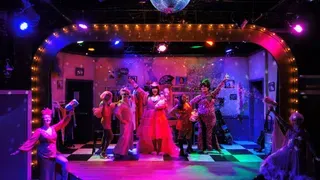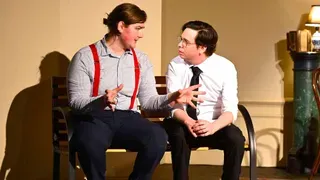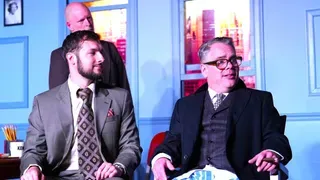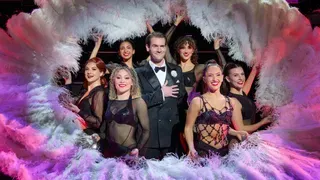April 24, 2013
Transgender Tuesdays
Andrew Clark READ TIME: 3 MIN.
"Transgender Tuesdays" is a documentary splintered over a few topics. One part of the film focuses rather sharply on the history of the transgendered community, depicting a community without today's levels of awareness and resources. The other segments focus on various events and conditions that affect the community, such as the AIDS crisis, general health care, and the current legislative state of transgendered rights. Much of this is achieved through interviews with members of the community from different generations dating back to the 1940's.
What the narrators' stories illustrate is a time period where not only was there nothing known about what it means to be transgendered, but also there was nowhere to go for proper care. Abuse and discrimination has steadily been a constant in the lives of transgendered people, and it was very effective to see the statistics and facts flashed between the interviews confirm that very little has changed in the legal or medical landscapes for the community over the last century. The transgendered people of America still inhabit a stark, ostracized place in our society.
The biggest success of the documentary was the focus brought in each segment on the different environments that the narrators described having left a lasting positive effect on them. With a continued scarcity in transgender resources and safe places to receive treatment and support, it is important to identify the type of programs and centers necessary to meet the community's needs. This was done through real people explaining what was comforting to them about the scarce help they received throughout different decades of the LGBT rights movement.
Despite many of these stories being significantly touching and fascinating in shining a light on an underrepresented community, the documentary largely fails to filter these stories through an effective narrative lens. The narrators speak with a winning informality that rings of sincerity, but with little else happening in the film other than the occasional statistic that can be mostly found in one survey, it lost out on a chance to funnel these important stories towards a clear goal.
This is a trap that many such documentaries that rely on interviews from members of a community fall into. Stories from different eras are important to document, especially for a community such as the transgendered one that has so little media or literature with which to learn of its history. However, by the end of the film there wasn't much to walk away with other than the news that the transgendered people of America still face discrimination and are undertreated. For the audience likely to watch this documentary, this is not exactly new information.
In the end, however, even with its weaknesses, "Transgender Tuesdays" excels in drawing sincere, illuminating stories from different age groups within the transgender community, and that, in itself, is an important feat. It's telling that the biggest disappointment I felt with the documentary was that there wasn't enough information. This is a historically underrepresented, misunderstood demographic that needs society's awareness and help more than any other group, so any effort to bring this to light by including real people and their histories must be commended. Perhaps future films will be able to incorporate the genuine approach of this documentary with a more informative format.







